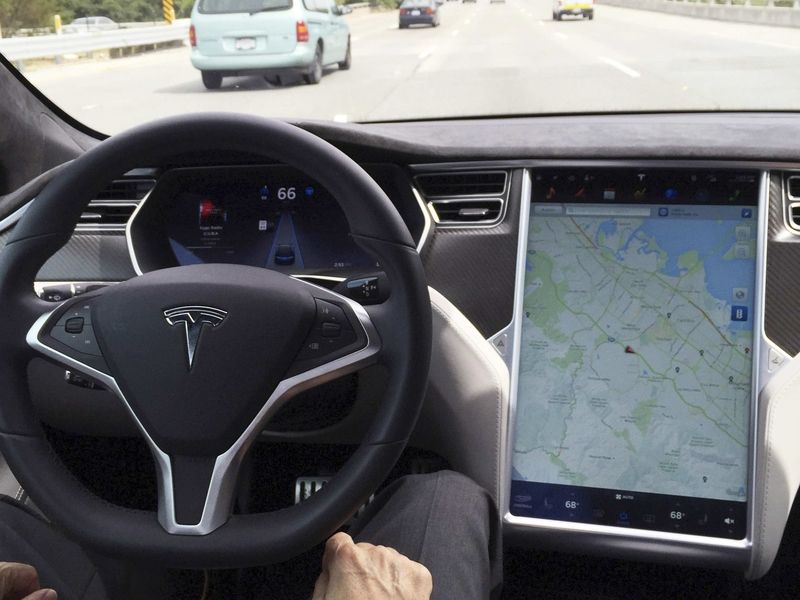
WASHINGTON — U.S. vehicle safety regulators have opened a preliminary evaluation to assess potential issues with Tesla’s advanced driver-assistance system known as Autopilot after a series of crashes around the country.
The investigation was opened Friday and covers Tesla models Y, S, X and 3 from the 2014 to 2021 model years, according to a document filed by NHTSA. An estimated 765,000 vehicles could be affected.
The agency’s Office of Defects Investigation said it has identified 11 crashes since January 2018 in which various Tesla models were driven near first-responder scenes and subsequently struck one or more vehicles involved with those scenes. In addition to the 11 crashes, the agency’s report cites 17 injuries and one death.
The Tesla vehicles involved in the crashes were all confirmed to “have been engaged in either Autopilot or Traffic-Aware Cruise Control during the approach to the crashes,” the agency said in its report.
“Most incidents took place after dark and the crash scenes encountered included scene control measures such as first responder vehicle lights, flares, an illuminated arrow board and road cones,” the report said.
Through the investigation, U.S. safety regulators will assess the technologies and methods used to monitor, assist and enforce the driver’s engagement with driving tasks while Autopilot is in use. The investigation also will assess the how vehicles in Autopilot mode identify and respond to obstacles in the roadway and the operational design of the system.
NHTSA’s probe also will examine the contributing circumstances for the 11 crashes and “other similar crashes,” the agency said.
The investigation comes after multiple reports of Tesla vehicle crashes around the country — some of which have involved the electric vehicle maker’s Autopilot driver-assist system.
NHTSA has opened at least 30 investigations into Tesla crashes since 2016.
The agency in June issued an order requiring automakers and other operators of vehicles equipped with advanced driver-assistance systems, such as Autopilot, or fully automated driving systems to report crashes where the system was engaged during or immediately before the crash.
Most NHTSA investigations start as preliminary evaluations, in which agency engineers request information from the manufacturer, including data on complaints, injuries and warranty claims. The manufacturer can also present its view regarding the alleged defect and may issue a recall.
After the evaluation, NHTSA will either close the investigation or move into the next phase. If a safety-related defect exists, according to NHTSA, the agency may send a “recall request” letter to the manufacturer.
Tesla did not immediately respond to a request for comment.
In a statement Monday, NHTSA said the preliminary evaluation “starts the agency’s fact-finding mission and allows additional information and data to be collected — in this case about Tesla Autopilot.”
“NHTSA reminds the public that no commercially available motor vehicles today are capable of driving themselves,” an agency spokesperson said in a statement. “Every available vehicle requires a human driver to be in control at all times, and all state laws hold human drivers responsible for operation of their vehicles.”
“Certain advanced driving-assistance features can promote safety by helping drivers avoid crashes and mitigate the severity of crashes that occur, but as with all technologies and equipment on motor vehicles, drivers must use them correctly and responsibly,” the spokesperson said.

